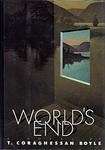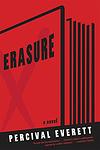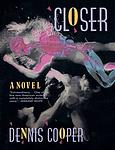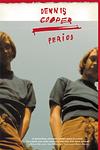The Greatest "Postmodern, California" Books of All Time
Click to learn how this list is calculated.
This list represents a comprehensive and trusted collection of the greatest books. Developed through a specialized algorithm, it brings together 300 'best of' book lists to form a definitive guide to the world's most acclaimed books. For those interested in how these books are chosen, additional details can be found on the rankings page.
Genres
Postmodernism is a literary movement that emerged in the mid-20th century, characterized by a rejection of traditional narrative structures and a focus on self-reflexivity and intertextuality. Postmodern literature often features fragmented narratives, unreliable narrators, and a blurring of the lines between reality and fiction. It is a genre that challenges the notion of a single, objective truth and instead embraces the idea of multiple perspectives and interpretations. Postmodern literature is often seen as a response to the modernist movement that preceded it, and it continues to be a popular and influential category for contemporary writers.
Countries
Date Range
Reading Statistics
Click the button below to see how many of these books you've read!
Download
If you're interested in downloading this list as a CSV file for use in a spreadsheet application, you can easily do so by clicking the button below. Please note that to ensure a manageable file size and faster download, the CSV will include details for only the first 500 books.
Download-
1. The Crying of Lot 49 by Thomas Pynchon
The novel follows the journey of a woman who stumbles upon a centuries-old conflict between two mail distribution companies when she is appointed the executor of her ex-lover's will. As she delves deeper into the mystery, she begins to question her own sanity and the reality of the conspiracy itself. The story explores themes of communication, interpretation, and the struggle to find meaning in a chaotic world.
-
2. World's End by T. C. Boyle
"World's End" is a multigenerational saga that takes place in upstate New York. The narrative alternates between the 17th century, where a Dutch estate is the setting for a brutal power struggle between a master and his rebellious servant, and the 1960s, where a young man struggles with his family's past and his own place in the world. The book explores themes of power, class, and the cyclical nature of history.
-
3. Erasure by Percival Everett
This novel follows a successful African-American academic and author who, frustrated by the publishing industry's expectations and stereotypes around black literature, pens a satirical novel under a pseudonym. The novel becomes a huge success, forcing him to grapple with the unexpected consequences of his critique on the industry. He is also dealing with personal issues, including the disappearance of his sister and his mother's declining health. It's a complex exploration of identity, race, and the literary world.
-
4. Closer by Dennis Cooper
"Closer" is a provocative and unsettling novel that delves into the lives of a group of teenagers in Los Angeles who are navigating a world filled with nihilism and desensitization. The narrative centers around George Miles, a vulnerable and impressionable young man whose emotional detachment and search for meaning become the focal point around which other characters orbit. Through a series of fragmented and often disturbing interactions, the novel explores themes of obsession, love, and the extremes to which alienation and the quest for connection can drive human behavior. The book is noted for its stark, minimalist style and its unflinching approach to controversial subject matter.
-
5. Period by Dennis Cooper
"Period" is the final installment in a five-part series that delves into the dark and often disturbing experiences of a group of teenagers. The narrative is fragmented and experimental, exploring themes of obsession, violence, and desire through a disjointed and surreal lens. The protagonist, along with his friends, navigates a chaotic world where reality and fantasy blur, leading to a climax that is both shocking and ambiguous. The novel challenges traditional storytelling with its unique structure and provocative content, leaving a lasting impact on the reader.
-
6. Big Sur by Jack Kerouac
The novel chronicles the experiences of a writer battling with the corrosive effects of fame, alcoholism, and depression during his retreats to a cabin in Big Sur, California. Seeking solace in the serene beauty of the rugged coastline, the protagonist grapples with the pressures of his literary success and the self-destructive tendencies that threaten to overwhelm him. As he interacts with friends and lovers, the narrative delves into the complexities of human relationships and the search for inner peace amidst the chaos of life, ultimately painting a poignant picture of a man on the brink of personal disintegration.
-
7. Vineland by Thomas Pynchon
This novel is a complex, multi-layered narrative set in the 1980s in California, weaving together themes of government surveillance, counterculture, and the loss of the 1960s idealism. It follows the story of Zoyd Wheeler, a former hippie, as he navigates a world that has drastically changed from the one he once knew, with the Reagan administration's conservative policies in full swing. The narrative delves into the lives of various characters, including Zoyd's daughter Prairie and his ex-wife Frenesi, exploring their connections to a shadowy federal agency and their personal quests for identity and redemption amidst the remnants of a bygone era. The book is a rich tapestry of historical references, quirky humor, and poignant observations about America's cultural and political landscape.
-
8. Double Or Nothing by Raymond Federman
"Double Or Nothing" is an experimental novel that explores the life of a young man trying to pen a novel about his experiences as a Holocaust survivor. The book is unique in its format, with the protagonist's thoughts, ideas, and narrative presented in various graphic and typographical forms. The narrative is nonlinear and fragmented, reflecting the protagonist's struggle to make sense of his traumatic past and his attempts to express it through writing.
-
9. Spreadeagle by Kevin Killian
This novel is a satirical look at modern-day America, focusing on a tech mogul who purchases a large portion of the state of Michigan to create a utopia for the wealthy. The narrative is told through the perspectives of a variety of characters, including the mogul's personal assistant, a porn star, and a teenage girl. The novel explores themes of capitalism, technology, and the American dream, all while presenting a critique of the extreme wealth and power held by a select few in society.
-
10. Holy Land by D. J. Waldie
The book is a reflective memoir that explores the transformation of a small town in California into a planned suburb, examining the intersection of personal history with the broader American landscape. Through a series of short, vividly descriptive chapters, the author delves into the mundane yet profound experiences of life in a grid of uniform homes, offering insights into community, identity, and the sacredness found in ordinary spaces. The narrative is interwoven with thoughtful meditations on faith, geography, and the architecture of living spaces, revealing how the physical environment shapes personal and collective experiences.
Reading Statistics
Click the button below to see how many of these books you've read!
Download
If you're interested in downloading this list as a CSV file for use in a spreadsheet application, you can easily do so by clicking the button below. Please note that to ensure a manageable file size and faster download, the CSV will include details for only the first 500 books.
Download








